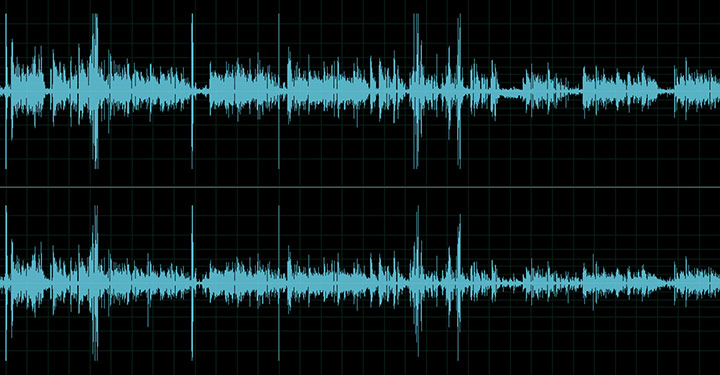Expert witnesses: our researchers are leading the way in forensic speech science
-
Research
- Culture and Communication
Posted on 6 January 2015
Our linguistics experts are in demand in court rooms around the world where their expertise in speech analysis is aiding efforts to identify and eliminate crime suspects.

Speech is one of the most complex types of biometric information.
As expert witnesses, researchers in the Department of Language and Linguistic Science apply their skills in linguistics, phonetics and acoustics to aid criminal investigations and high profile trials.
As well as identifying accents and speech characteristics, the Department has developed important new insights into how speech is affected by face coverings such as a scarf, balaclava or niqaab. Researchers have studied speech on mobile and landline phones plus digital channels such as Skype. They are also exploring the ability of ‘ear witnesses’ to identify or recall voices.
Their pioneering work has established York as one of the world’s largest research groups in the growing field of forensic speech science, a form of analysis now routinely undertaken for legal teams in UK and international courts.
Biometric information
Professor Paul Foulkes said: “Speech is one of the most complex types of biometric information. The research at York has established that variation in speech is caused by a wider range of factors than is generally acknowledged in forensic phonetics.
“For instance, our research shows that recall can be affected if the voice is shouted, disguised or transmitted by telephone. Our research highlights the importance of the context of each case and helps to assess the reliability of the testimony.”
They advised in a high profile murder trial in New Zealand where legal argument centred on a disputed section of a voice recording and a criminal trial in Malaysia where an alleged kidnapping was carried out by a suspect wearing a face mask.
The Department is using its expertise to nurture the next generation of forensic speech analysts with an MSc degree programme in Forensic Speech Science.
Professional training
York also supports practising forensic analysts who travel to our campus from around the world to undergo professional training. As result, York-trained analysts can be found listening carefully in speech laboratories in countries including Denmark, Norway, the Netherlands and Spain.
The Department works closely with York-based J P French Associates (JPFA), the UK’s leading laboratory for forensic speech and audio analysis.
Many JPFA staff were recruited from the pool of postgraduates in the Department, including three who undertook PhDs.
Professor Peter French from JPFA said: “Our relationship with the University of York has enabled the firm to be at the forefront of research in modelling individual speaker characteristics. This has provided us with a better understanding of the strengths and limitations of the various approaches to forensic speaker comparison and assisted with our development of new practical phonetic and acoustic measures used in casework.”
The text of this article is licensed under a Creative Commons Licence. You're free to republish it, as long as you link back to this page and credit us.

Paul Foulkes
Research Title: Professor in the Department of Language and Linguistic Science
Works in phonetics, phonology, language variation and change, language acquisition, and forensic phonetics.
Discover the details
Find out more in the York Research Database and beyond
Additional researchers
External organisation
- J P French Associates (JPFA) (jpfrench.com)
Visit the department
Explore more research

A research project needed to spot trees on historic ordnance survey maps, so colleagues in computer science found a solution.

We’re using gaming technology to ensure prospective teachers are fully prepared for their careers.

A low cost, high-accuracy device, could play a large part in the NHS's 'virtual wards'.
